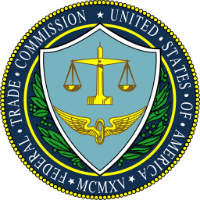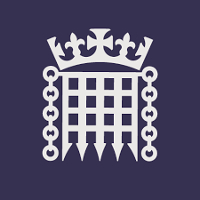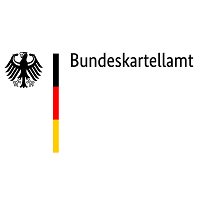Not so long ago, whenever a government or legislative body announced an investigation into one of the tech giants it was major news.
Nowadays some of these announcements hardly register. Cases bubble up and die down, investigations are passed between different authorities, and any conclusions which are drawn are quickly thrown into doubt as the companies affected file appeals.
But all this antitrust scrutiny does add up, and we are seeing the impact. For example Google’s pivot from FLoC to Topics API earlier this year was influenced by input from the UK’s Competition and Markets Authority.
So while all the various efforts to reign in big tech may seem overwhelming in number and underwhelming in outcomes, they’re very much worth keeping track of.
Here are some dates for the diary in 2022:
USA
There have been a number of bills recently introduced into either the House of Representatives or the Senate which target the big tech companies. And disdain for the tech giants is one of the few issues that unites Democrats and Republicans – thought the root cause of this disdain varies.
Bills can easily be introduced and amount to nothing, but a few proposed laws show signs of making progress:
- The American Innovation and Choice Online Act’ would prevent tech companies from favouring their own products and services within their own platforms. This bill was approved by the Senate Judiciary Committee last month, and has picked up bipartisan support. The House version of the bill meanwhile is already out of committee and ready for a vote. No date has been set for a vote in either chamber
- ‘The Open App Markets Act’ would prevent big app stores from forcing apps to use their payment systems, and require the likes of Apple and Google to allow users to download third-party app stores on their devices. The bill passed a Senate Judiciary Committee vote earlier in February. No date has been set for a vote in either chamber.
- ‘Platform Competition and Opportunity Act’ would seek to prevent dominant online platforms from buying young potential rivals, by forcing tech companies to prove their proposed mergers and acquisitions aren’t anticompetitive (as opposed to regulators having to prove they are). The bill has been referred to the Senate Judiciary Committee.
- ‘Journalism Competition and Preservation Act’ would allow publishers of online content to collectively negotiate with dominant online platforms regarding the terms on which content may be distributed, making it easier for publishers to push for payments from Facebook and Google. Hearings over the bill were held earlier this month by the Subcommittee on Competition Policy, Antitrust, and Consumer Rights.
The US Department of Justice pulled the trigger on one of its investigations into Google in late 2020, filing a civil antitrust lawsuit against the company over anti competitive behaviour in search and search advertising.
The case has been in a protracted period of discovery, but Judge Amit P. Mehta has set a date for the trial of September 12th 2023, declaring in November that the trial will go ahead in that timeframe “by hook or by crook”. It’s likely that ongoing state-led lawsuits against Google may get folded into the DOJ’s case.
The Justice Department is also expected to file two new lawsuits – another against Google for monopolistic practices in online advertising, and one against Apple for anticompetitive behaviour in its App Store.
Politico cited sources who said decisions are likely to be made in spring this year, though there’s still internal wrangling over whether Jonathan Kanter, the assistant attorney general, must recuse himself from the case due to having previously worked for critics of Apple and Google.
While the Department of Justice has taken charge of Google and Apple, the Federal Trade Commission has taken responsibility for Meta and Amazon.
The FTC filed a lawsuit against Meta (back when it was Facebook) in December 2020, stating that the company was “illegally maintaining its personal social networking monopoly through a years-long course of anticompetitive conduct”. The Commission hoped to force Facebook to divest assets including WhatsApp and Instagram.
This case was dismissed last June, with the District Court in DC stating that the FTC lacked evidence. The FTC filed an amended complaint soon after, and this case is set to go ahead. No date has yet been set for this trial.
The FTC hasn’t yet launched a case against Amazon, though it is said to be looking specifically at Amazon’s AWS cloud business. The Commission is still waiting on the confirmation of its fifth commissioner, with President Biden’s nominee Alvaro Bedoya awaiting approval via a Senate vote. Assuming Bedoya is approved, the FTC’s chair Lina Khan, a known critic of Amazon, will have a party majority of 3-2, paving the way for more aggressive enforcement.
Alongside action from the federal bodies, we’ve seen a number of different investigations and cases initiated by coalitions of state attorneys general.
One of the most prominent of these is a complaint filed against Google, led by Texas’ Ken Paxton. This suit, originally filed in December 2022, alleges that Google has used anticompetitive practices to maintain a stranglehold over digital advertising. This lawsuit made waves last year when the unredacted complaint was released to the public, with email snippets contained within the complaint suggesting that Google and Facebook have colluded to protect each others’ ad businesses.
Google filed a motion to dismiss this case in January, which is awaiting a decision. The case has also been held up by back and forth over discovery, with Google and Texas as odds over how many documents the plaintiffs should have access to.
A case against Meta, led by New York’s Letitia James, was also filed in 2020, but this case was dismissed last year, with the judge ruling that the coalition of attorneys general had waited too long to file. However this case was resurrected in January as James appealed the dismissal.
Europe
A major focus of the European Union’s efforts to rein in big tech are the upcoming twin bills the Digital Markets Act and Digital Services Act.
While both bills will significantly impact the tech giants, the Digital Markets Act is more specifically focussed on the very largest companies, or ‘gatekeepers’ in the EU’s terminology.
The European Commission released its vision for the legislation at the back end of 2020, and the European Parliament approved an amended version of the bill in December. Now trilogue negotiations, where all three EU bodies discuss a bill to reconcile their positions, in order to make quick progress on legislation.
The first of these negotiations took place in January, and lawmakers hope an agreement can be reached by the end of March, paving the way for the final bill to be passed.
Meanwhile the European Commission is running a number of ongoing investigations into the US tech giants. Two investigations were launched in quick succession last summer – one into Facebook’ use of advertisers’ data in its own classified ads, and one into alleged anticompetitive behaviour from Google in the ad tech sector.
These joined ongoing investigations into Amazon and Apple. For both of these cases, the Commission has already issued a Statement of Objections – whereby the Commission indicates it has found evidence of antitrust violations.
There is no legal deadline for any of these cases.
The UK’s Online Safety Bill, while not directed solely towards the biggest tech companies, will have a significant impact on them – imposing new rules on digital platforms to protect users from harmful content. Communications regulator OFCOM will be appointed to enforce the bill once it becomes law.
Progress has been fairly slow for the legislation. A White Paper backing the bill was released in 2019, but a draft version of the bill wasn’t published until May last year. Since then the bill has passed through various legislative committees, with adjustments made along the way.
For the time being, there is no confirmed date for when the Online Safety Bill will return to the House of Commons for a vote. It can be assumed it will be some time this year, since the bill was included in the Queen’s Speech, which sets out the government’s legislative priorities for the year ahead.
The government has also committed to launch an entirely new regulatory body, the Digital Markets Unit, which would specifically regulate the big online platforms. This pro-competition unit could be given specific powers to suspend, block, and reverse decisions taken by tech giants.
The Digital Markets Unit has already been set up within the Competition and Markets Authority (CMA). But it has not yet been enshrined in law, meaning the DMU doesn’t yet have any additional powers to regulate online platforms, beyond the existing powers of the CMA.
The government had previously committed to consulting on proposals for the new regime last year – but again progress has been slow, and there’s no indication of when the DMU might be formally established by law.
 Competition and Markets Authority
Competition and Markets Authority
The UK’s main competition watchdog, the Competition and Markets Authority, has three major investigations into specific tech giants.
The first, an investigation into Apple’s app store and the terms and conditions it places on app developers, was launched in March last year. This investigation is still in its early stages of information gathering and analysis – which is due to end some time this month. After this, we might expect more detail on whether the CMA has evidence of antitrust violations.
The second is an investigation into Meta’s use of data in classified ads and online dating – launched alongside the European Commission’s investigation (see above). This is also in its early stages, and also due for an update some time this month.
The third investigation, into Google’s Privacy Sandbox, was closed last week. The CMA secured commitments from Google over how the sandbox will progress. The CMA says it will still play an active role in monitoring developments within the sandbox, and will have final say over whether sandbox solutions harm competition or not.
Another CMA case worth watching is its investigation of Meta’s merger with GIF provider GIPHY. The CMA concluded last November that Meta’s merger with GIPHY posed competition risks, and ordered Meta to sell GIPHY.
The CMA is still working on the final order which will force Meta to sell GIPHY, which is expected before April 4th. The case is worth watching – some have questioned the power of regulators outside the US to force US-based tech giants to divest parts of their business. The CMA’s order will test that power.
OFCOM isn’t a competition regulator, but issues relating to online platforms have often fallen within OFCOM’s domain, meaning it has at times found itself commenting on antitrust issues. And as mentioned above, OFCOM’s role in regulating platforms will be massively strengthened once the Online Safety Bill is passed, presumably later this year.
In the meantime, OFCOM is working on several reports which could be consequential for the tech giants. One – a report on the future of media plurality in the UK (which will include comments on how digital platforms affect the sustainability of journalism), is due in the summer of this year.
Another, which will cover OFCOM’s regulation of video sharing platforms, is due in Autumn this year. This report could (though won’t necessarily) signal a step-up of OFCOM’s scrutiny of video platforms – so far OFCOM has largely been engaging and consulting with the industry, rather than handing out fines.
France’s antitrust body L’Autorité de la Concurrence has handed out some of the more notable fines in Europe. These include a €500 million fine for Google last year relating to payment negotiations with publishers, and a further €220 million fine for Google due to Google’s preferential treatment of its own ad tech services.
L’Autorité has an ongoing case into Google’s creation of Google News Showcase as a means for paying publishers, which investigated whether Google has been able to impose unfair terms on publishers as part of this setup. Comments from publishers and press agencies, and third parties were due by January 31st, meaning we could see an update some time soon.
The watchdog also has cases open on Meta and Apple, though we haven’t had updates on either of these for a while.
The Meta case concerned alleged unfair conditions and lack of transparency in using Facebook’s advertising tools, in a case brought by French ad tech company Criteo. L’Autorité received commitments from Meta last summer, which were then released for consultation. There doesn’t seem to have been an update since then.
Similarly L’Autorité was looking into antitrust concerns relating to Apple’s App Tracking Transparency changes last year. After initially concluding that no immediate action was needed, the regulator said it would continue investigating the merits of the case – again, there’s been no update since then.
A new law which came into force in Germany at the beginning of last year enables the country’s competition watchdog, the Bundeskartellamt, to intervene earlier and more effectively in cases relating to large tech companies.
The regulator quickly launched investigations against Meta, Amazon, Google, and Apple, asking whether any of these companies are of “paramount significance” across markets (as required by the new law).
Earlier this year the Bundeskartellamt concluded this initial stage for Google, determining that it does have paramount significance across markets – meaning it can take quicker action where necessary. The regulator has ongoing investigations into Google’s data processing terms and Google News Showcase – meaning we could see quicker judgements made on these issues.
And we should expect to see judgements on Meta, Amazon, and Apple some time soon too, though the Bundeskartellamt hasn’t given a deadline for when this might be.
The Bundeskartellamt also has ongoing investigations into Amazon, around price gouging and brand-gating. If the antitrust body concludes that Amazon has paramount significance across markets, these could see quicker conclusions due to the regulator’s stronger powers.













